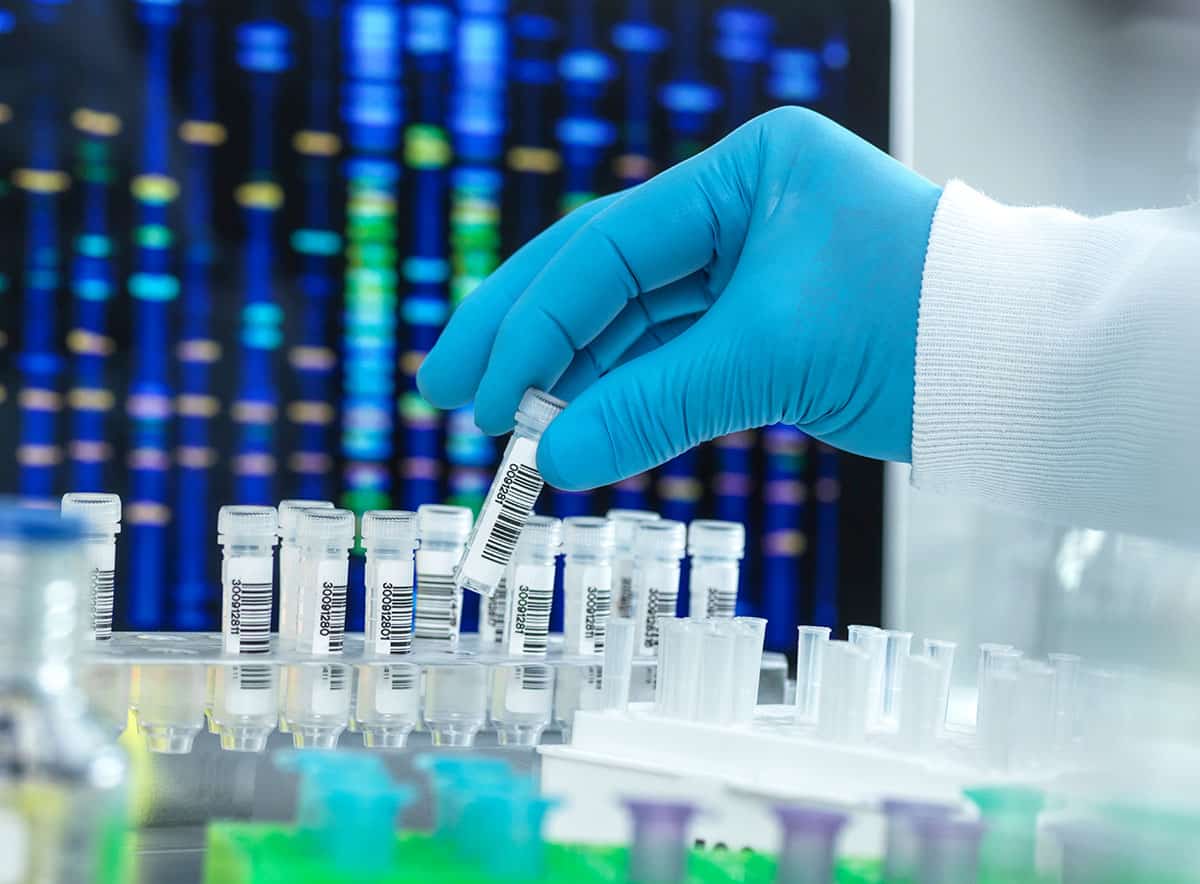Why Personalization Matters in Mental Health & Addiction Treatment
For decades, treating addiction and mental health involved a frustrating amount of trial and error—especially when it came to medications used to treat withdrawal, co-occurring disorders, and other aspects of recovery. What works well for one person might cause side effects or no benefit at all for someone else. And without clear answers, patients and families often felt stuck, cycling through options without real progress.
That’s where advanced genetic testing comes in.
At Enterhealth, we use a comprehensive form of genomic testing approach—integrated with functional medicine diagnostics—to go beyond standard panels and uncover the root causes of emotional and behavioral symptoms. This level of testing provides clinically actionable insights into how a person’s brain and body function at the genetic and biochemical level, helping us understand, predict, and address vulnerabilities that may be affecting mental health, recovery, and medication response.
By identifying these patterns, we’re able to deliver care that’s truly personalized—optimizing treatment to support brain function, emotional stability, and long-term healing.
What Genetic Testing Can Reveal
Genetic testing offers powerful insight into the biological factors that influence how someone responds to treatment. We look for clinically relevant genetic variants—small changes in a person’s DNA that can affect brain chemistry, mood regulation, metabolism, and how the body processes medications.
These insights allow us to do more than just personalize treatment—they help us assess individual vulnerabilities, guide safer medication choices, and tailor prevention and relapse strategies to the person’s unique biology.
For example, genetic differences may affect how someone breaks down certain medications, regulates stress hormones, absorbs nutrients, or produces key neurotransmitters like dopamine or GABA. They may also help clarify why a person is more sensitive to certain triggers, or why standard treatments haven’t worked in the past.
By identifying unique genetic variations, we can move beyond guesswork and build treatment plans that are not only more effective, but more proactive—addressing root causes and reducing the risk of future setbacks.
Tailoring Medications Through Genetic Insights
One of the most immediate and impactful uses of genetic testing is guiding medication decisions. For many patients, especially those with co-occurring mental health conditions, finding the right medication can feel like a long process of trial, error, and side effects. Genetic testing helps shorten that process.
By analyzing genes related to drug metabolism, we can identify how quickly or slowly someone processes specific medications—insights that significantly influence dosing and drug selection. This is especially valuable when prescribing medications for substance use disorders, depression, anxiety, or other behavioral health challenges.

For example, if a person has a variation that slows down the breakdown of an antidepressant, they may be more prone to side effects at standard doses. If they metabolize medications too quickly, they may not reach therapeutic levels without adjustment. Genetic data allows us to anticipate these differences before complications arise.
This approach aligns with our model of functional psychiatry—an approach that looks beyond symptoms and diagnoses to understand the biological, psychological, and environmental factors shaping a person’s experience. By integrating genetic data into medication planning, we’re not just improving comfort or efficiency—we’re supporting deeper, root-cause healing.
A New Lens on Mental Health & Addiction
Symptoms like anxiety, depression, mood swings, intense cravings, or compulsive behaviors often get lumped together under broad diagnoses. But it’s critical to ask why those patterns are showing up—and how biology might be driving them.
Genetic testing helps clinicians look beneath the surface.

Rather than relying solely on checklists or self-reported symptoms, this testing reveals how a person’s brain and body may be contributing to their mental health and addiction challenges. Reports can include genetic markers related to conditions such as anxiety, depression, ADHD, OCD, stress vulnerability, and susceptibility to certain substance dependencies. We analyze genes that regulate neurotransmitters such as serotonin, dopamine, GABA, glutamate, and adrenaline, as well as how the body handles inflammation, metabolizes medications, and absorbs nutrients essential for brain health.
In some cases, chronic emotional distress, cravings, or relapse patterns may be tied not just to brain chemistry, but to factors like:
- Poor methylation or nutrient absorption (e.g., folate or B12)
- Difficulty clearing cortisol and other stress hormones
- Inflammatory responses that affect mood, cognition, and impulse control
- Blood sugar instability that fuels emotional reactivity and substance-seeking behaviors
These same pathways can help explain why some people are more vulnerable to certain addictions—insights that can inform prevention, monitoring, and early intervention strategies.
Just as important, genetic testing results often include clinically actionable recommendations: dietary changes, targeted supplements, medication adjustments, or other therapeutic strategies based on the individual’s profile. With this level of detail, we can design more focused, effective treatment plans that address the true sources of distress—whether psychological, physiological, or both.
Understanding Metabolism, Detox & Their Role in Recovery
The brain doesn’t heal in isolation—it’s connected to every system in the body. Genetic testing can reveal how well a person’s metabolic and detoxification pathways are functioning, which can influence everything from medication tolerance to emotional stability and cognitive clarity.
We assess:
- Methylation pathways (MTHFR, COMT), which affect how the body processes nutrients and neurotransmitters
- Homocysteine levels, which influence inflammation and brain health
- Detoxification genes, which help determine how efficiently the body clears medications, toxins, and stress byproducts
When these systems are impaired, patients may experience symptoms like fatigue, brain fog, or emotional instability. With the right insights, we can adjust treatment plans—using targeted supplements, nutrition support, or medication changes—to promote more effective and sustainable recovery.
Why This Matters for Patients & Families
For many people, addiction and mental health treatment has been a frustrating cycle—trying one medication after another, adjusting doses, waiting weeks to see if something works. When progress stalls or side effects hit, it can feel like starting over from scratch.
Genetic testing offers a smarter, more compassionate path.
By uncovering the biological factors that influence brain function, stress response, and treatment outcomes, we can help explain why standard approaches may not have worked—and what to do differently going forward. It removes guesswork, reduces risk, and builds a treatment plan that’s not only personalized, but strategic.
This is especially powerful for families who’ve watched a loved one struggle with relapse, medication resistance, or co-occurring mental health symptoms. When you understand what’s happening under the surface, the road to recovery starts to make a lot more sense.
Personalized Treatment at Enterhealth, Powered by Genetic Insights
Healing happens when treatment goes deeper. Genetic testing is one of the tools we use to understand each patient’s unique brain, body, and biochemistry—so we can deliver care that’s precise, evidence-based, and built around the individual.
Whether you’re seeking support for addiction, anxiety, depression, or all of the above, personalized insight can make the difference between another round of trial and error—or real, lasting change.
Reach out today to learn how our brain-based approach to recovery can help you or your loved one take the next step forward.




